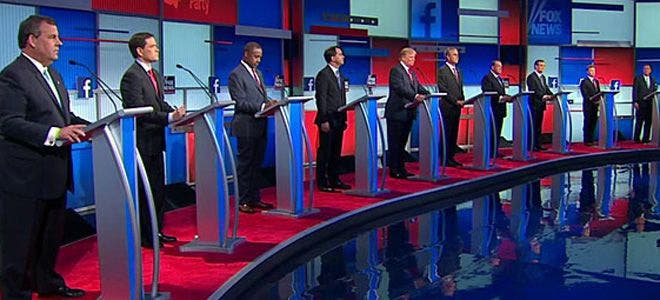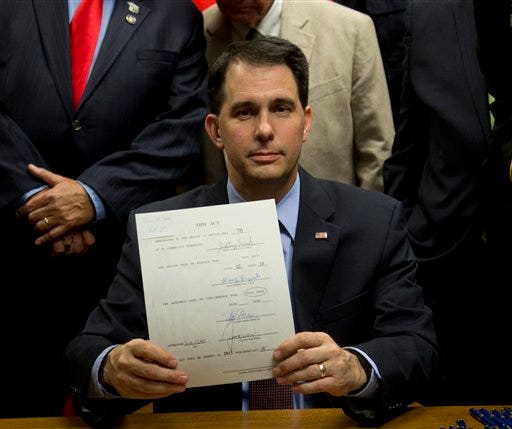Justice Stevens dropped a national bombshell on Friday by announcing his retirement from the Supreme Court. Given the hot-button issues the High Court is deciding, the announcement makes the Supreme Court a top issue for the 2010 elections as the country examines President Obama’s short list of who will become America’s newest justice.
On April 9, Justice John Paul Stevens transmitted a letter to the White House, informing President Obama that he will retire at the end of June, when the Court’s annual recess begins. Although widely anticipated, this announcement profoundly changes the national political climate as possible successors to Stevens come to the fore.
There are already several names on President Obama’s short list. They include U.S. Solicitor General Elena Kagan, Judge Diane Wood on the Seventh Circuit, Judge Merrick Garland on the D.C. Circuit, and Governor Jennifer Granholm of Michigan.
Although there are other names on the “long list” who are often discussed, for various reasons they shouldn’t be on the short list. For example, Homeland Security Secretary Janet Napolitano’s “the system worked” comment and other embarrassments probably means she wouldn’t be nominated. And Attorney General Eric Holder’s far-left performance would likewise make him a flawed nominee. The public attention that ultra-liberals Cass Sunstein and Harold Koh have received probably keeps them out of contention, despite their top-tier academic credentials. And the advanced age of a couple other contenders, most notably Professor Larry Tribe of Harvard, makes them unlikely as well.
So who will be President Obama’s nominee? That depends on the kind of fight that the president is willing to wage.
In one sense, General Kagan may be Obama’s ideal pick. She’s a top graduate of Princeton and Harvard Law School, clerked for Justice Marshall on the Supreme Court, worked at one of the country’s top law firms, and then became dean of Harvard Law School. Now she represents the federal government before the High Court, in a position that is sometimes referred to as “the tenth justice.”
Although widely suspected to be a strident liberal, the evidence of her liberalism doesn’t explicitly prove her far-left views of the law, making her a stealth candidate for the left, just as Chief Justice Roberts was a stealth candidate for the right. She’s also a woman. Further, at age 49 (she turns 50 at the end of this month), Kagan could serve on the Court for 40 years, shaping the nation’s interpretation of constitutional law for decades to come.
In another direction, Judge Garland could be the easiest to confirm, making him the best pick if President Obama wants to avoid a serious fight. Garland earned both his bachelor’s degree and his law degree from Harvard, where he was also a top performer. He clerked for Justice Brennan on the Supreme Court, was a successful attorney, a federal prosecutor, and serves on the nation’s most respected federal appeals court, the D.C. Circuit.
On the one hand, Judge Garland is clearly a liberal. On the other hand, he’s probably more moderate than everyone else on the short list. And there are surely no skeletons in his closet. If Obama wants a relatively-safe pick (which is doubtful), he’ll go with Garland.
The toughest fight would likely come with Judge Diane Wood, who sits on the Seventh Circuit appeals court in Chicago. Wood received both her undergrad and law degree from University of Texas, which is a prestigious—but not elite—law school. She clerked for Justice Blackmun (the author of Roe v. Wade) on the Supreme Court, worked as a lawyer with a top national law firm, and is a professor at the University of Chicago (which is an elite law school).
What would make Wood tough is that she’s undisputedly a staunch liberal, and has written controversial opinions with regards to a couple hot-button judicial issues, including abortion. She’s also the oldest contender, turning age 60 in three months. Her nomination only makes sense if Obama wants to energize his base and if he’s fully confident of holding Senate Democrats together to push her through.
Finally, there’s Governor Granholm from Michigan. The Canadian-born Granholm is a graduate of Harvard Law, a federal prosecutor, and a former Michigan attorney general. Granholm is clearly a liberal with zero elected-office prospects following her governance of Michigan in a Canadian big-government style that has helped destroy the state’s economy. But Granholm’s polished public-speaking style and the fact that the Court has no former elected officials are strong selling points for her, as is her age (51), which is why she rounds out the short list.
One surprising monkey-wrench was thrown into the confirmation process by Justice Stevens himself. Conservative leader Phyllis Schlafly recently made the point that Justice Stevens was the only member of the Court who had any military experience (such military service used to be common for High Court justices), and that the next nominee should therefore be a veteran.
While it’s not surprising that Ms. Shlafly (who also holds a law degree) would make such a point, what is surprising is that Justice Stevens seems to agree, commenting in a March New Yorker article that he thought military service is important for a Supreme Court justice.
None of the contenders in the short list served a single day in uniform, which is something Republicans can highlight during the confirmation fight. And should the Senate leadership fully grasp the enormous significance of a Supreme Court vacancy in the current political climate, they will do everything possible to make this confirmation a slow and deliberate process, to fully engage the American people in what they should want—and not want—in a Supreme Court justice.
So the ball is now in President Obama’s court. Will he go with someone on the short list, or surprise us all? If I had to guess, I’d say that Kagan is the most likely contender. (I successfully guessed that Sonia Sotomayor would be his first pick.) But Supreme Court nominations are full of surprises, and this could be one of those moments.
Either way, then, the ball will be in the Republicans’ court, as America faces the reality that the U.S. Supreme Court is about to change.
Ken Klukowski is the co-author of the forthcoming book The Blueprint: Obama’s Plan to Subvert the Constitution and Build an Imperial Presidency, on sale April 27. He is a frequent Fox Forum contributor.
Fox Forum is on Twitter. Follow us @fxnopinion.





Leave a Reply